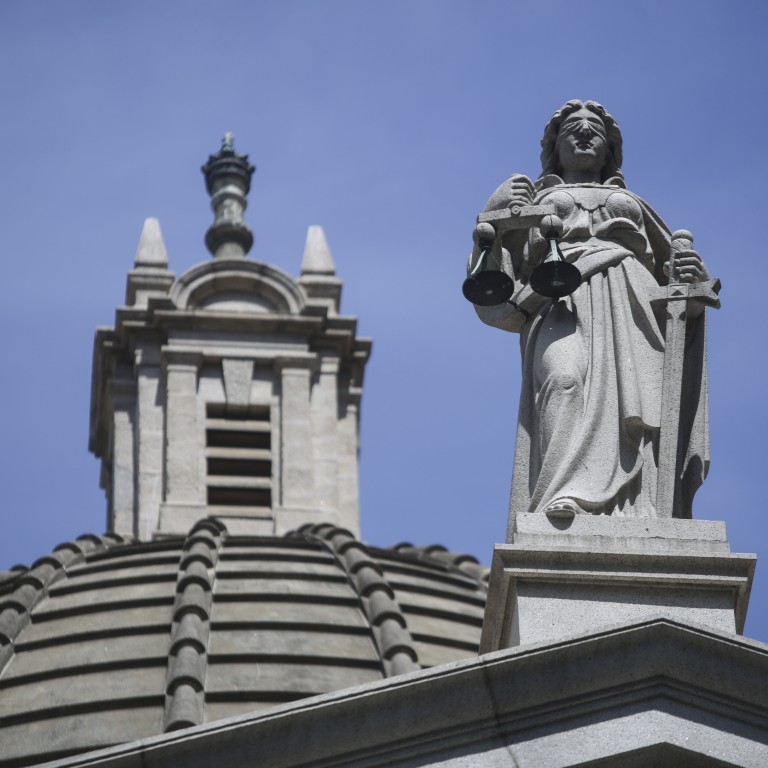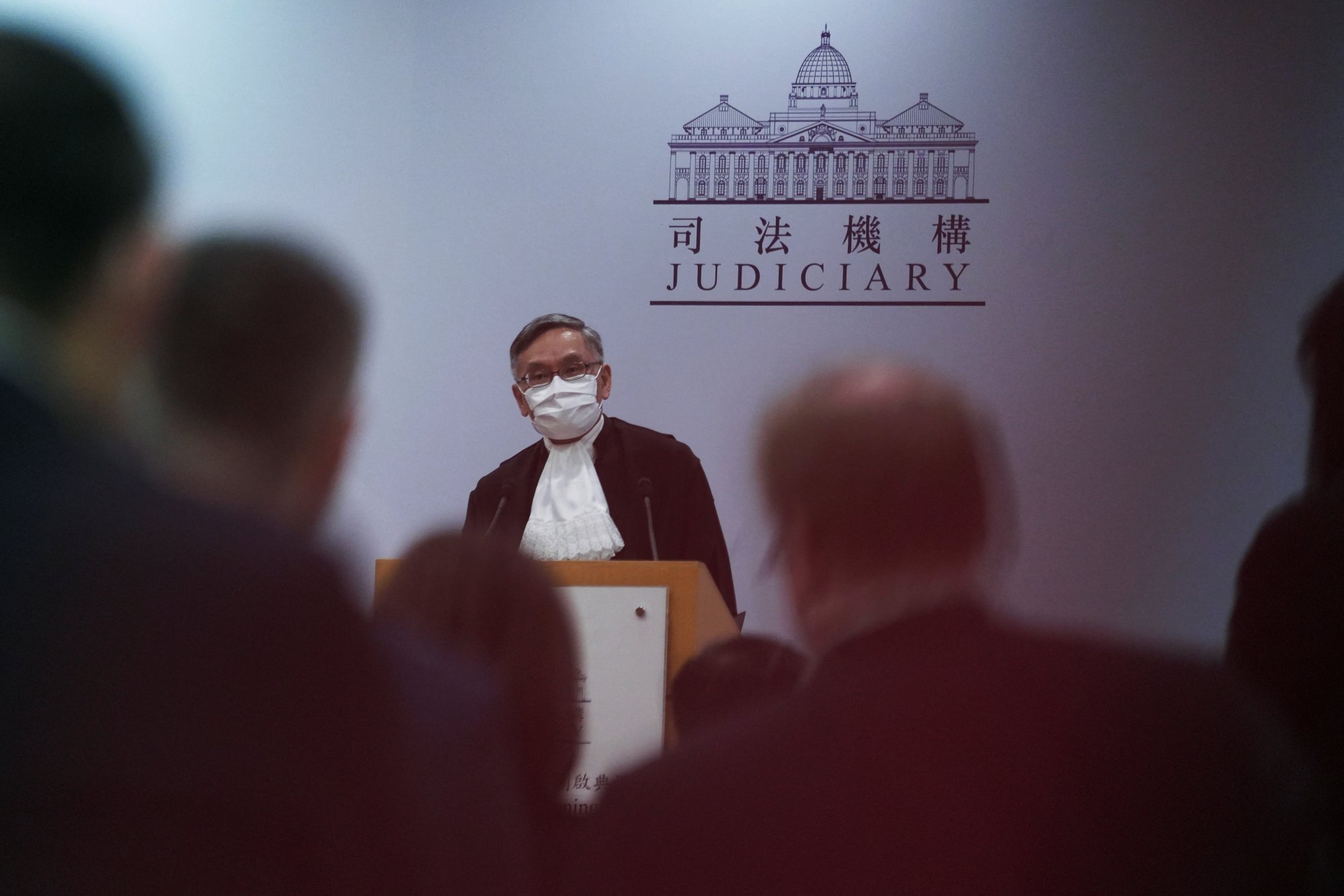
Be wary of social media ‘liking’ and avoid responding to doxxing attacks, Hong Kong’s judiciary tells judges
- Official guidelines for judges updated for first time since 2004, with new section on social media
- Guide advises judges to avoid defending their rulings publicly or responding directly to media criticism
Hong Kong judges should think twice about whether their social media interactions could damage public confidence in the judiciary and refrain from personally responding to doxxing attacks, newly revised official guidelines have suggested.
While the “Guide to judicial conduct” acknowledged that a lack of basic knowledge about social media might suggest a judge was “out of touch” with today’s world, it urged them to refrain from using the platform in a way that could pose a risk to themselves or compromise their integrity.
“[The] new additions to the guidance in this edition are reflective of the information technology era in which we live,” Chief Justice Andrew Cheung Kui-nung said in the preface of the guide, revised for the first time since 2004.

“Judges should be wary of ‘friending’, ‘liking’, ‘following’ or other forms of online or social media association with any person, group or entity where such association may undermine the perception of their impartiality in a particular case or could damage public confidence in the judiciary in general,” the guide reads.
Those sitting on the bench should refrain from commenting on cases, legal issues, litigants, witnesses or lawyers on social media, it stated, adding that ex parte communications between a party or its lawyer and the judge through online platforms were also inappropriate.
Judges should take reasonable care that information about their personal life did not enter the public domain unnecessarily through their use of social media or by postings from family members and friends, it added.
For the first time, the guide addressed online abuse and doxxing, asking judges to refrain from responding directly to the attacks and to instead consult the court leader when appropriate.
Justice chief hits out at ‘biased’ reporting on appeals against protesters
Last year, Secretary for Justice Teresa Cheng Yeuk-wah warned that doxxing attacks aimed at judges and others involved in the administration of justice were on the rise and “must be curtailed”.
Doxxing refers to collecting and publishing an individual’s personal data or that of their family members on the internet or social media with malicious intent.
In a separate chapter on media criticism of court decisions, the guide asked judges to refrain from responding or making incidental comments about the articles.
“It is generally inappropriate for judges to defend their judgments publicly,” it said, adding that media comments on an anonymous basis should also be avoided.
‘Hold internet service providers liable for not removing leaked data’: judge
Many jurisdictions refer to the 2002 Bangalore Principles of Judicial Conduct, as universally recognised principles in formulating social media guidelines for judges.
The most cited ones included: “A judge, like any other citizen, is entitled to freedom of expression, belief, association and assembly, but in exercising such rights, a judge shall always conduct himself or herself in such a manner as to preserve the dignity of the judicial office and the impartiality and independence of the judiciary.”
In Britain, members of the judiciary who blog must not identify themselves as members of the judiciary, while the American Bar Association had said that social interactions of all kinds can prevent judges from being perceived as out of touch.
Executive councillor Ronny Tong Ka-wah, who has served as a deputy judge in the High Court, said the revisions were necessary.
“For instance, if [serving judges] unintentionally add friends who might be regarded as undermining the social system and peace, this would directly affect the impartiality and independence of the judicial system in people’s eyes,” he said. “Their sacrifice of certain rights to freedom of expression enjoyed by other members of the community is not unreasonable.”

